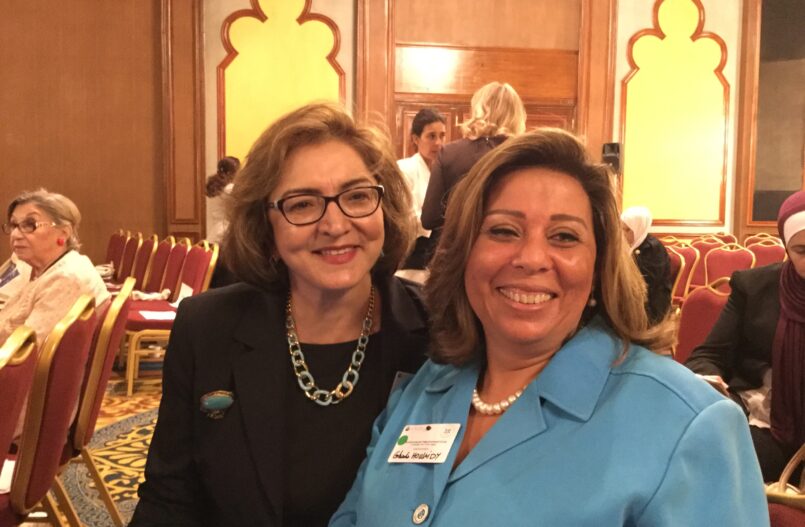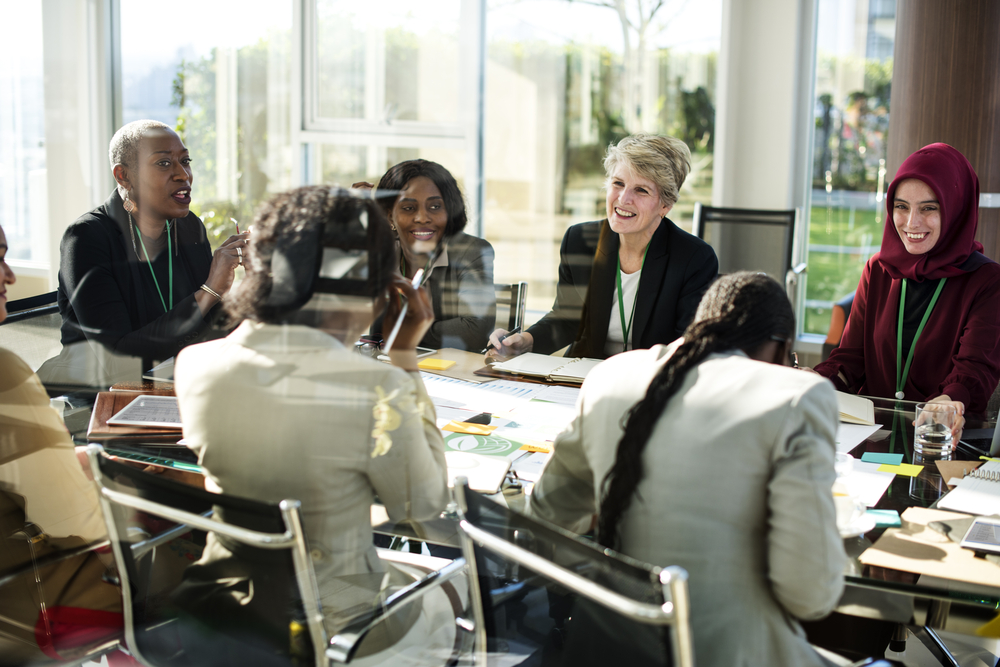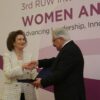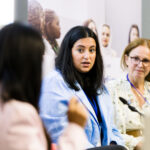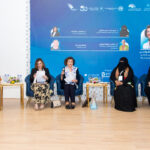Delegates from 22 countries and 12 international organizations gathered in Cairo on 7 – 8 October 2017 to witness the launch of the MENA-OECD Women’s Economic Empowerment Forum and debate the findings of the recent OECD publication that researched Women’s Economic Empowerment in Selected MENA Countries: The Impact of Legal Frameworks in Algeria, Egypt, Jordan, Libya, Morocco and Tunisia. The report highlights that “… raising women’s labour force participation rates to that of men could add up to USD 12 trillion, or 26% to global GDP by 2025.” While the countries covered in the report have made the necessary constitutional reforms to support gender equality, implementation and practice remain a challenge. The MENA region still has the lowest rate of women’s participation in the labour force globally. The report identifies additional factors impacting women’s agency such as banking practices, social norms and traditions as well as women’s confidence and personal security.
More than 45 speakers including government ministers, ambassadors, directors of regional and international multilateral organizations, as well as policy analysts, business executives, civil society representatives and academics, discussed the impact of the Sustainable Development Goals, SDGs, on women’s economic empowerment in the MENA region. Delegates also delved into the balancing act women maintain between personal responsibilities and career opportunities as well as the challenges they face in the informal economy. In addition to sharing best practices in setting up institutions that support gender equality across the MENA region, experts analyzed the access women have to finance and financial literacy, which has been identified as a main obstacle facing women entrepreneurs. The need for more gender-disaggregated data to inform and monitor policy decisions, and enable the development of internationally comparable indicators was also emphasized.
AIWF was well represented at the event with the participation of AIWF Board Member and International Development Advisor, Nadereh Chamlou, and Ghada Howaidy, Executive Director, Strategic Alignment, School of Business, The American University in Cairo. Nadereh chaired the joint session on ‘Work-Life Balance and the Informal Economy’ and Ghada was a speaker in the same session. Nadereh highlighted how gender is now a global issue and that women all over the world and particularly in the MENA region bear the larger burden of home care for the young and the elderly in society. She called for more detailed studies of the care economy in order to identify the parts that could be pushed out to the market to free women and expand their choices. Ghada pointed out that the informal economy reflects a failure by the state to provide inclusive growth, enforce regulations and offer protection to certain segments of society. Some of the reasons for women to opt out of the formal economy include fear of taxation and red tape. She also pointed out that none of the participants in the Forum belonged to the informal economy, so the voice of the main stakeholders was missing from the conversation.
The Forum concluded by stressing the universality of SDGs and the importance of keeping women’s economic empowerment on the national agenda in the MENA region and to have it adopted and supported by men as well as women.




